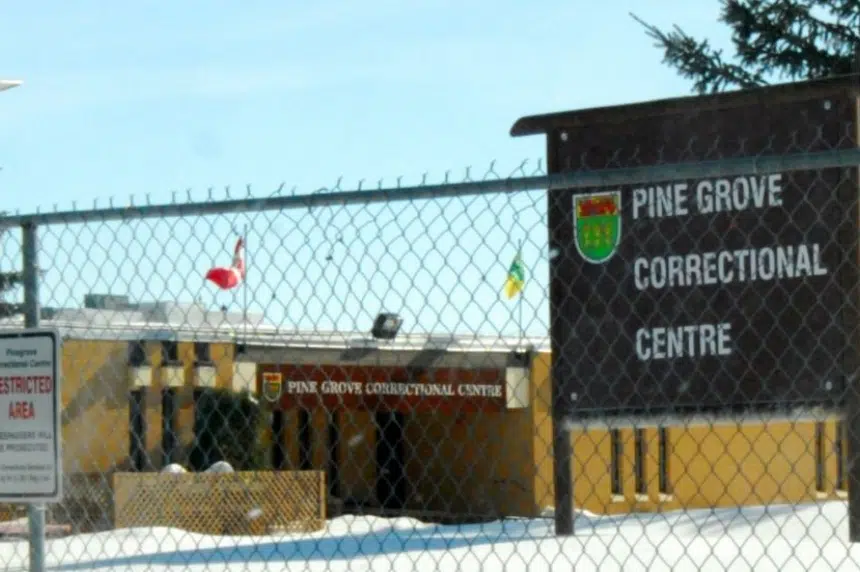Story by paNOW’s Nigel Maxwell
The president of the union that represents all legal aid staff and lawyers in Saskatchewan says she is amazed the public does not hear more stories like the one involving the freezing death of a woman in Saskatoon.
Julia Quigley, who is also a legal staff lawyer in Prince Albert, is responding to the death last month of Kimberly Squirrel. The 34-year-old was found frozen to death, just days after being released from the Pine Grove Correctional Center. Since then, questions have been raised with respect to why her family was not notified about her release and how a person with a history of mental health issues was left alone. Quigley explained there is no support in terms of getting people transferred back to their home communities to her knowledge.
“We’ve got people who are brought down to correctional centres in the south of the province from northern communities, for example, where I’ve had clients who had to hitchhike back north,” she said.
In addition to the obvious challenges brought on by cold weather, Quigley added COVID makes hitchhiking even more dangerous. She also explained a lot of families lack the means to drive long distances and would have relied on the Saskatchewan Transportation Company prior to its closure in 2017.
“There’s basically nothing for people to get home,” Quigley said.
Further adding to the challenges are people entering and leaving the correctional centres with complex mental health and addiction issues. Due to COVID-19, all programming has been halted.
“So you have the same people that went in with those issues, emerging a few days, weeks, or months later with the same issues. They are basically being put in an adult time out,” Quigley said.
In terms of the next move, Quigley has tried to raise the issue in the past with the CEO of legal aid but added there appears to be a reluctance to be too vocal, as legal aid is funded by the province. Quigley said she has tried to make some changes on a personal level.
“I had a client released from Pine Grove and I was very careful to make arrangements with the facility to only release her to her parents,” she said.
In the recent week, a GoFundMe campaign has been initiated by the group, Inmates For Humane Conditions, and is essentially designed to help inmates who may not otherwise be able to purchase call packages to connect with family. The group responsible for the campaign explained in a statement, that it aspires to help prevent another tragic loss such as Kimberly Squirrel’s. While Quigley supports the online campaign and the void that it fills, she said it should be the Ministry of Corrections and Policing providing the supports, not private citizens.
“It’s a responsibility and a duty on the correctional centres to make sure people are safe,” she said.
Response from within a correctional centre
Cory Cardinal, an inmate at the Saskatoon Correction Centre and founder of the group Inmates For Humane Conditions, told paNOW there are recommendations within the Missing and Murdered Indigenous Women and Girls inquiry designed to help incarcerated females in need of transportation
“A lot of things that were supposed to be in support of that just didn’t happen,” he said. “[Squirrel’s death] is an exact example of another failure by the ministry in protecting vulnerable people.”
According to Cardinal, another one of the problems may be a lack of knowledge by the inmates themselves, with respect to what services they are entitled to upon release. Reflecting back on his own experience, Cardinal said the transition back into a community after a period in custody is very difficult.
“You are going from having food every day, having everything provided for you, to basically going back into poverty,” he said. “It’s like shoo-ing you right back into the gutter without any support.”
In response to COVID protocols and allegations of human rights violations, roughly 30 inmates in Cardinal’s unit are currently involved in a hunger strike. Cardinal hopes their actions can help prevent future tragic stories, like the one of Kimberly Squirrel.
“That’s just one of the incidents where someone had to die for it to be in the public,” he said.
In response to the death of Kimberly Squirrel, the Elizabeth Fry Society of Saskatchewan, an organization that assists incarcerated women, posted a statement on their Facebook explaining they often see people fall through the cracks once they are released from our institutions due to a lack of planning.
“Often shelter, transportation and supports are not arranged prior to their release and people are left to navigate the systems alone. We are thinking of the Squirrel family,” the statement said, adding the society will continue to support and advocate for people leaving our institutions to be set up for success prior to their release.
Response from the Ministry
In a statement provided to paNOW by the Ministry of Justice, they expressed that their thoughts are with the family of the deceased during this difficult time, but added for privacy reasons, the Ministry is unable to speak to the specifics of an inmate’s release.
The statement explained release conditions for remand inmates are set out by the court and added conditions often require remanded inmates to have a set place of residence, dependent on their individual circumstances.
“It is up to the individual to decide what level of involvement their family may have in their release,” the statement indicated.
The ministry statement also explained corrections may provide transportation for offenders or individuals back to their home community upon release from any court point or correctional facility in the province of Saskatchewan.
“The first responsibility to obtain transportation lies with the offender. Once all personal efforts have been exhausted, the offender can seek assistance from corrections. This policy has been in place for a number of years,” the statement said.
As of Aug. 31, corrections spent approximately $25,000 assisting offenders with transportation to return to their home community in the 2020-21 fiscal year.
With respect to concerns around much-needed programming, the ministry statement explained their ability to provide programming to remand offenders is limited, “as the indeterminate length of a remand offender’s stay in a correctional facility makes it extremely challenging to schedule and provide consistent effective programming.”
“Corrections works with sentenced offenders to provide them with a release plan to support their successful reintegration into their community. That preparation may include assisting offenders in securing safe and supportive residency, accessing relevant programming, employment networking, and connecting with community supports.”







